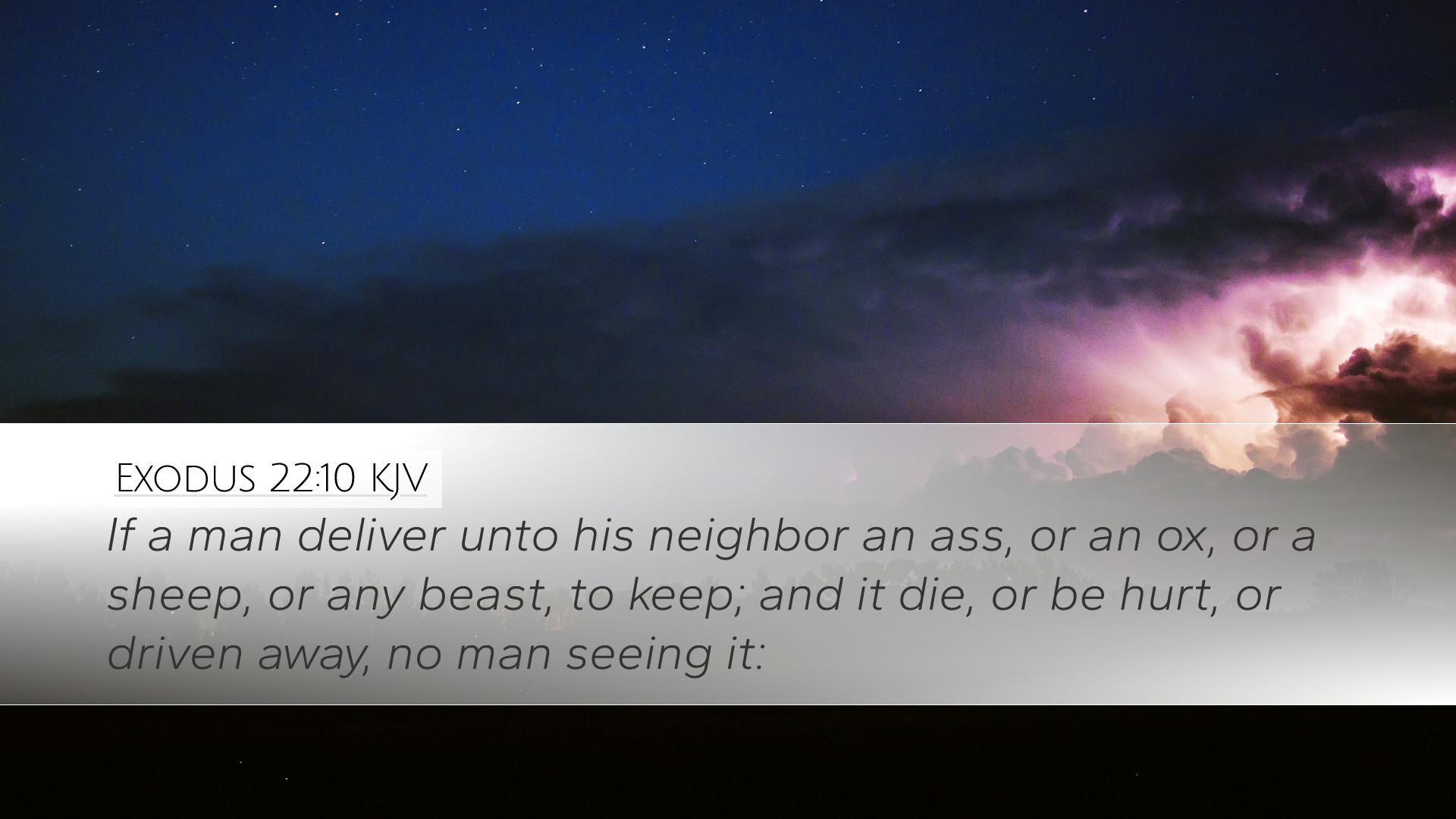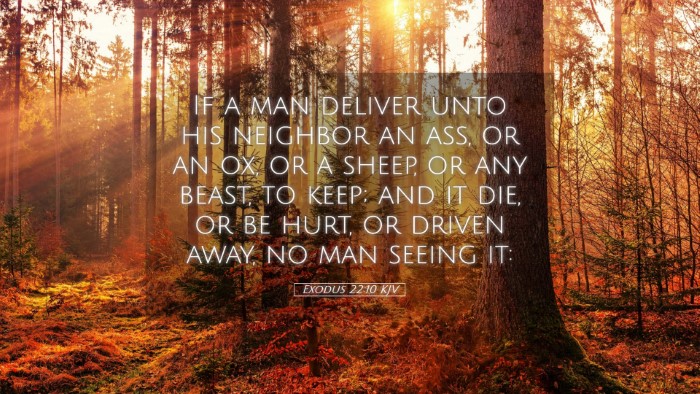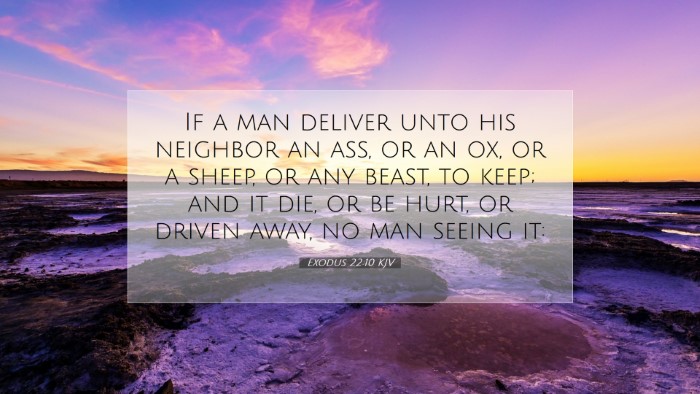Exodus 22:10 - Commentary
Bible Verse: "If a man delivers to his neighbor a donkey, or an ox, or a sheep, or any beast to keep, and it dies, or is hurt, or is driven away, no one seeing it,
Introduction
This verse falls within a section of Exodus where the Lord provides various laws intended to govern social life and justice in Israel. These regulations were crucial for the community's cohesion and ethical standards.
Understanding the Verse
Exodus 22:10 focuses on the responsibilities of individuals in a communal setting, especially concerning the protection of property. It serves as a significant reflection on trust, stewardship, and justice.
Commentary from Public Domain Sources
Matthew Henry's Commentary
Matthew Henry discusses this verse within the broader context of property rights and responsibilities. He emphasizes that it illustrates the necessity for individuals to be accountable for the care of another’s possessions. Henry notes:
- Responsibility: The act of lending is an act of trust, yet that trust comes with the obligation to safeguard what has been lent.
- Justice: Should negligence occur, justice must prevail. The lender should not suffer loss without recompense or investigation of responsibility.
- Social Harmony: Such laws foster community integrity, requiring members to work together to maintain peace and fairness.
Albert Barnes' Commentary
Albert Barnes provides insight into the practical implications of the verse, arguing that it highlights the importance of evidence in disputes. He points out that the absence of a witness creates a complex situation:
- Evidential Burden: The responsibility shifts to the keeper of the beast to provide proof of the cause of the loss.
- Trust and Proof: This reflects a deep understanding of human relationships where trust is paramount, yet regulations must account for the complexities of life.
- Legal Framework: Such stipulations served as a foundation for a legal system that sought to balance the interests of both parties involved, thus ensuring fairness in adjudication.
Adam Clarke's Commentary
Adam Clarke elaborates on the moral and ethical implications of this verse. He conveys that the care of another’s property should be approached with the utmost diligence:
- Ethical Responsibility: When one takes on a task, such as caring for another's animal, it is a moral obligation to protect it as if it were one’s own.
- Nature of the Loss: Clarke asserts that the type of loss (death, injury, or loss) dictates the response and responsibility of the caretaker, stressing the nuanced understanding required.
- Contextual Integrity: The verse encourages a culture of responsibility and integrity, which were paramount for maintaining trust within the community.
Theological Implications
This passage raises several theological reflections:
- Stewardship: Humans are called to be stewards not only of their own possessions but also of the trust placed in them by others.
- Justice and Mercy: The interplay between justice and mercy is crucial in understanding God’s character. Justice requires accountability, while mercy seeks understanding of the circumstances.
- Community and Relationship: The establishment of laws concerning property demonstrates the importance of healthy relationships in society, reflecting the relational nature of God’s covenant with His people.
Application for Pastors and Theologians
This verse is rich with principles that can be applied in both pastoral and theological contexts:
- Teaching Stewardship: Pastors can utilize this passage to teach about the importance of stewardship in all aspects of life—spiritual, relational, and material.
- Conflict Resolution: It provides a framework for discussing conflict resolution, emphasizing the need for clear communication and maintaining trust in relationships.
- Covenant Relationships: The passage can serve as a basis for discussions on covenant relationships in the modern church, emphasizing accountability, trust, and care for one another.
Conclusion
Exodus 22:10 serves as a potent reminder of the importance of responsibility, trust, and justice in community and personal relationships. The insights from noted commentaries deepen our understanding of biblical laws as not merely historical or legalistic but as reflective of deeper principles relevant to contemporary readers, pastors, students, and theologians alike.


